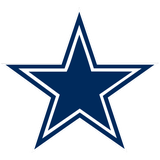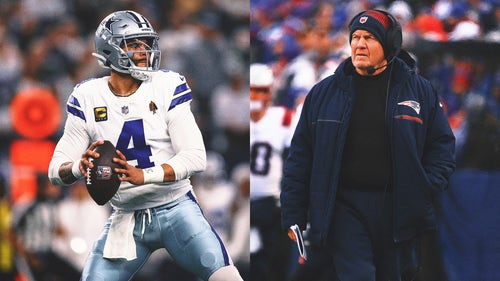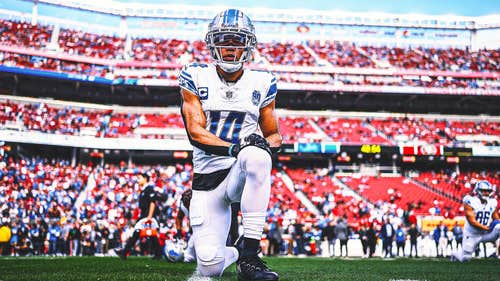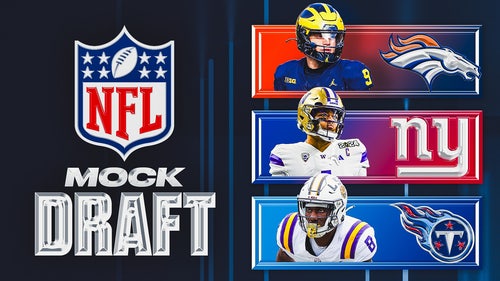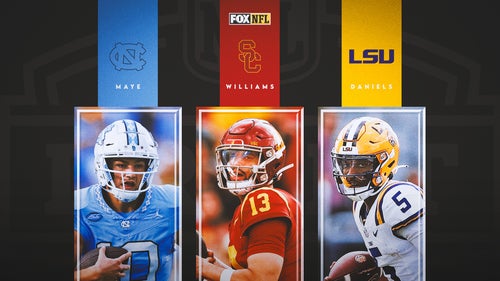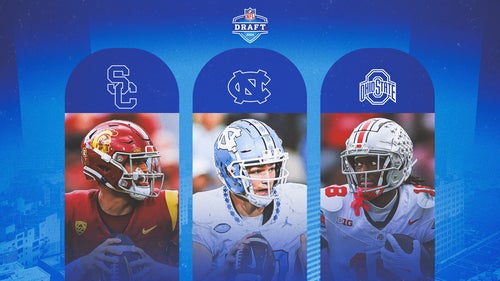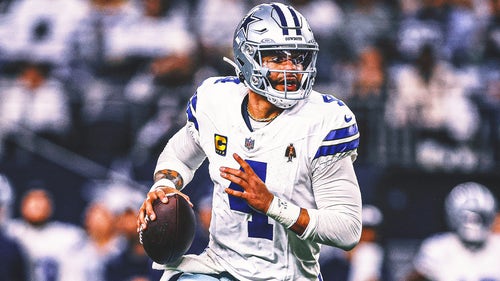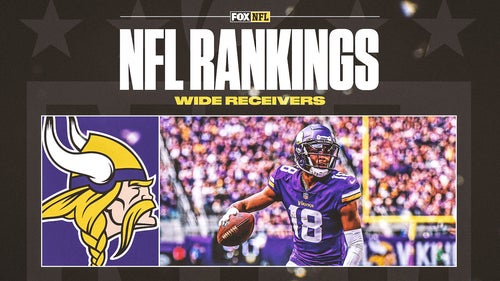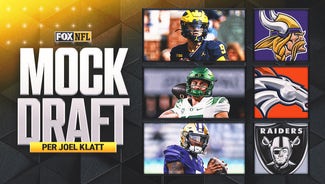
The 10 worst Super Bowls of all-time
As we get ready for Super Bowl LI on Sunday, here are the 10 worst Super Bowls of all-time.
Super Bowl Sunday has become a de facto American holiday, with a lot of casual fans watching the game for the notable television commercials during breaks in the action. Competitive games have become more typical in the last decade-plus, after being notable exceptions in the 1980’s and 1990’s, but with 50 editions of the NFL’s biggest game in the books there’s a big sample to rank and re-rank according to quality.
Super Bowl LI (51) will kickoff from NRG Stadium in Houston on Sunday, Feb. 5, as the New England Patriots take on the Atlanta Falcons. Time will tell where the game will rank among the greatest or worst Super Bowls, but hopes are high for an exciting, competitive game with two top-notch quarterbacks leading the offenses.
With fingers crossed that this list won’t require an edit Monday morning, here are the 10 worst Super Bowls of all-time.
10. Super Bowl 50-Denver Broncos 24, Carolina Panthers 10
Yes, last year’s Super Bowl belongs on this list. Peyton Manning and Cam Newton combined to complete less than half of their passes (31-for-64) with no touchdowns through the air, and there were only two offensive touchdowns in the game.
Manning went out on a high note with his second Super Bowl win, as a game manager, while the Broncos’ defense made Newton look mortal and set the stage for Carolina’s disappointing 2016 season. But it was not an exciting game, with or without any recency bias.
Mandatory Credit: Sylvia Allen-Getty Images
9. Super Bowl XV-Oakland Raiders 27, Philadelphia Eagles 10
Ron Jaworski is now best known as an ESPN analyst who watches film religiously, apparently (and tongue-in-cheekly) without enough hours in the day to do so. So younger fans may not even realize he played in the NFL as a quarterback for a long time, let alone played in a Super Bowl with the Eagles in the middle of his career. The Raiders were clearly the better team in New Orleans on Jan. 25, 1981 though, jumping out a 14-0 lead by the end of the first quarter and never looking back.
Raiders linebacker Rod Martin intercepted Jaworski a single-game Super Bowl record (for an individual) three times in the game, and quarterback Jim Plunkett threw for 261 yards and three touchdowns on his way to earning MVP honors.
Plunkett holds the unique distinction of being the only currently eligible quarterback to start and win multiple Super Bowls but not have a bust in the Pro Football Hall of Fame. The Super Bowl XV win over the Eagles was the first of those two wins on the NFL’s biggest stage, but other than that the second of what have been many Super Bowls in the Superdome stands out as a real downer.
Mandatory Credit: Kevin C. Cox-Getty Images
8. Super Bowl XLVIII-Seattle Seahawks 43, Denver Broncos 8
Peyton Manning brought a prolific offense with him to Denver, and an AFC title in his second season with the Broncos. But that Super Bowl at MetLife Stadium was a reality check, against a Seattle defense at the peak of its power. A bad shotgun snap on the game’s first offensive play, which yielded a safety for the Seahawks, started a snowball of adversity that the Broncos could not overcome.
If a 22-0 halftime lead wasn’t enough for the Seahawks, Percy Harvin put the game to bed with a 87-yard return of the second half kickoff for a touchdown. That effectively ended any real chance the Broncos had to gain any momentum for a possible comeback, and a 36-8 margin at the end of the third quarter made the result a formality.
The analysis of Manning’s career record in big games was re-ignited after losing Super Bowl XLVIII in blowout fashion. He would redeem himself and his legacy to some degree two years later, in a diminished physical state, but the 48th Super Bowl was one-sided from the start and is clearly one of the worst renditions of the game we’ve ever seen.
Mandatory Credit: Rob Brown-Getty Images
7. Super Bowl XXII-Washington Redskins 42, Denver Broncos 10
John Elway’s second Super Bowl appearance as Denver Broncos’ quarterback started better than the first, with a 10-0 lead at the end of the first quarter. But it was all downhill from there, as the Redskins put up a Super Bowl record for a single quarter 35 points in the second quarter and took control of the game.
Washington’s victory in January of 1988 came with multiple notable individual achievements. Game MVP Doug Williams became the first African-American quarterback to win a Super Bowl, running back Timmy Smith set a Super Bowl record with 204 rushing yards and wide receiver Ricky Sanders set a then-Super Bowl record with 193 receiving yards on nine catches from Williams.
Elway would lose a third Super Bowl as a player before winning the big game in each of his final two seasons. But with the prospect of a Broncos’ victory looking good against the Redskins for a time, before a blowout ensued as Washington put up 42 unanswered points, Super Bowl XXII deserves its solid place on this list.
Mandatory Credit: Getty Images
6. Super Bowl XX-Chicago Bears 46, New England Patriots 10
“The Monsters of the Midway” were on a mission during the 1985 season, nearly finishing the regular season unbeaten behind a dominant defense led by defensive coordinator Buddy Ryan. The offense was no slouch either, with Jim McMahon under center and Walter Payton leading the rushing attack.
New England actually scored first in the game, on a 36-yard field goal by Tony Franklin just over a minute in after a fumble by Payton deep in Chicago territory. But the Bears’ defense quickly suffocated quarterbacks Tony Eason and Steve Grogan after that, holding the Patriots to negative yardage in the first half and just 123 total yards for the game.
A fun moment came when Bears’ defensive tackle William “Refrigerator ” Perry plunged in for a one-yard rushing touchdown in the third quarter. But head coach Mike Ditka has since pointed to not giving Payton that opportunity to score as his greatest regret in coaching, and looking back on the game as a whole those that watched it may regret having done so.
Mandatory Credit: Doug Pensinger-Getty Images
5. Super Bowl XXXVII-Tampa Bay Buccaneers 48, Oakland Raiders 21
“The Jon Gruden Bowl” pitted the head coach’s new team (the Buccaneers) against the one he led for the previous four seasons (the Raiders). Gruden’s familiarity with the opponent, what they wanted to do offensively and the Raiders apparently failing to change anything Gruden had installed helped Tampa Bay’s defensive game plan. As a result, the Buccaneers intercepted 2002 league MVP Rich Gannon a Super Bowl-record five times and otherwise shut down the NFL’s No. 1 offense from the regular season.
As is oddly the case in a fair amount of Super Bowl blowouts, the Raiders scored first with a field goal before falling flat on their face quickly. Tampa Bay took a 20-3 lead into halftime, then returned three interceptions for touchdowns in the second half, including the final two scores of the game in the fourth quarter. Safety Dwight Smith had two interception of those return touchdowns, but fellow safety Dexter Jackson had two interceptions of his own (zero touchdowns) and took home Super Bowl MVP honors.
If not for the Raiders scoring a touchdown off of a blocked punt early in the fourth quarter, this game would have been even more one-sided in favor of Tampa Bay. Super Bowl XXXVII does hold one notable distinction though. Due in part to no extra week after the conference championship games, it is the last Super Bowl to have been played in January (January 26, 2003). The first Sunday in February has become the norm, and it will remain that way until further notice.
Mandatory Credit: Joe Traver-Getty Images
4. Super Bowl XXXV-Baltimore Ravens 34, New York Giants 7
The Ravens rode a stifling, record-setting, stingy defense to an AFC title as a 12-4 Wild Card team, and the only points the Giants managed in the Super Bowl came on a kickoff return by wide receiver Ron Dixon.
The Ravens (244) and the Giants (152) combined for just 396 offensive yards and 27 pass completions in Super Bowl XXXV, while combining to go a dismal 5-for-30 on third down. Baltimore’s defense forced five turnovers in the game, including four interceptions of quarterback Kerry Collins with one returned for a touchdown.
Baltimore did get 102 rushing yards from running back Jamal Lewis in their one-sided win, but otherwise it’s absolutely fitting that future Hall of Fame linebacker Ray Lewis took home Super Bowl MVP honors as the Ravens’ defensive leader.
The mantra of “defense wins championships” has never been more true than it was for the 2000 Baltimore Ravens. The 35th edition of the Super Bowl was not exciting, outside of the brief buzz of back-to-back kickoff return touchdowns, or particularly well-played in any sense. But that could have been expected, with a dominant defense on one side and an offense that was sure to be overmatched on the other.
Mandatory Credit-Don Larson-Getty Images
3. Super Bowl XXVII-Dallas Cowboys 52, Buffalo Bills 17
The Buffalo Bills reached their third of four straight Super Bowls after the 1992 season, against the at the time rising Dallas Cowboys. Super Bowl XXVII took place at the Rose Bowl in Pasadena, California, and is the most recent Super Bowl to take place in the Los Angeles area. With the Rams moving back to the area, and a new stadium coming, Super Bowl LV will be back near the City of Angels in February of 2021.
As is the common refrain on this list, the Bills actually scored first in this game. But an avalanche of turnovers, a Super Bowl-record nine by game’s end, started and the Cowboys carried a 28-10 lead into halftime.
A notable and infamous Super Bowl highlight came in the fourth quarter. Cowboys’ defensive tackle Leon Lett recovered a fumble and was well on his way to scoring a touchdown, but he got careless with the ball and dropped it to his side with one hand on it. In a remarkable display of hustle, Bills’ wide receiver Don Beebe took off down the sideline, entered the television frame and forced a fumble. The resulting touchback kept Dallas from setting a Super Bowl record for points, and put Lett on bone-headed play lists for eternity.
A Super Bowl rematch would come the next year, and the Bills would lose to Dallas again in a one-sided game. But that did not come close to what happened in Super Bowl XXVII, as the Cowboys re-established themselves as a dominant NFL team with a notable blowout win.
Mandatory Credit: Mike Ehrmann-Getty Images
2. Super Bowl XL-Pittsburgh Steelers 21, Seattle Seahawks 10
For my money, this is the most boring Super Bowl we’ve ever seen and it’s not especially close. Leave aside the story of Steelers’ running back Jerome Bettis winning a ring in his final NFL game, in his home town of Detroit, and Super Bowl XL is even less appealing.
The game was generally poorly officiated, from the perspective of Seahawks’ fans in particular. Being in just his second NFL season was a factor, but winning quarterback Ben Roethlisberger went just 9-for-21 for 123 yards with two interceptions. The most exciting play in the game was a gadget play, as Steelers’ wide receiver (and former college quarterback) Antwaan Randle El threw a 43-yard touchdown to MVP Hines Ward midway through the fourth quarter. A 75-yard touchdown run by Steelers’ running back Willie Parker was also notable, but not particularly memorable.
A special occasion like the 40th Super Bowl deserved better than what the Steelers and Seahawks gave it. But it also looks like something of a turning point in the history of the game, as the Super Bowl has regularly featured exciting games, star power or both since the big dud in Detroit.
Mandatory Credit: Rick Stewart-Getty Images
1. Super Bowl XXIV-San Francisco 49ers 55, Denver Broncos 10
These two teams were regulars in the Super Bowl by this point. The 49ers were making their second straight appearance in the game, and fourth appearance in the last eight, while the Broncos were the AFC Super Bowl representative for the third time in four years.
The 49ers started quickly, with a 20-yard touchdown from Joe Montana to Jerry Rice to end their first possession. Denver answered with a field goal, but trading field goals for touchdowns proved to be an unsustainable formula. To say nothing of four turnovers in the game by the Broncos, which helped put them further behind the eight-ball.
Montana set a single-game Super Bowl record with five touchdown passes, on his way to winning MVP honors for the third time in four Super Bowl victories. The 49ers’ 55 points is also a Super Bowl record, along with their 45-point margin of victory.
This blowout Super Bowl loss looked like the end of any real chance Broncos’ quarterback John Elway had to win a ring in his career. But as was proven later, he elevated a lackluster team to three Super Bowls in four years and with better talent around him he ended his career with back-to-back Super Bowl wins.
The 1989 San Francisco 49ers were arguably the peak of a dynasty, and their offense was too much for the Broncos to handle in Super Bowl XXIV. The biggest point total and widest margin of victory in Super Bowl history come together to put the game atop this list.
More from FanSided
This article originally appeared on
